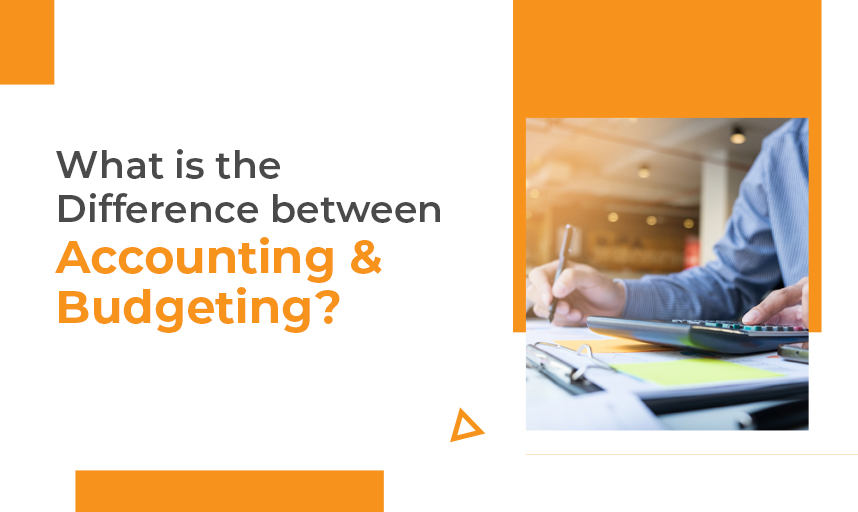What is The Difference Between Accounting and Budgeting?

Do you have trouble handling the finances of your company or organisation? Do you find the financial world to be perplexing and intimidating? Look nowhere else! Sound financial management requires an understanding of the distinctions between accounting and budgeting. Even though these two ideas are sometimes used interchangeably, they are essentially distinct. We’ll go on a fascinating journey into the world of finance and examine the significant differences between accounting and budgeting in this post. So buckle up and get ready to discover the amazing world of money!
What is accounting?
The process of documenting, categorising, and evaluating financial transactions is known as accounting. It entails maintaining records of financial information such as income, outlays, assets, liabilities, and equity. Businesses may utilise accounting to get precise financial data so they can make wise decisions. Financial accounting and management accounting are the two primary subtypes of accounting.
Financial accounting comprises the preparation of financial statements that give a general picture of a business’s financial performance over a given time frame. The income statement, balance sheet, and cash flow statement are some of these statements. They offer crucial details regarding the profitability, liquidity, and solvency of a company.
On the other side, managerial accounting focuses on giving managers access to internal financial data so they may make wise decisions. To find areas where a business may reduce expenses or boost financial performance, this sort of accounting entails reviewing costs, budgets, and performance data.
What is budgeting?
Making a plan to distribute financial resources over a set period of time is the process of budgeting. It involves setting financial objectives, listing out expenses, and figuring out how much cash is available for spending. Organisations may better plan and regulate their expenditure with the aid of budgets, which is crucial for their financial success. Budgets come in a variety of forms, such as operational, financial, and capital budgets.
Operational budgets concentrate on ongoing costs including salary, rent, and utilities. On the other hand, financial budgets put more of an emphasis on long-term financial planning, including investments and debt management. To prepare for significant investments in fixed assets like buildings, machinery, and vehicles, capital budgets are employed.
Key Differences between Accounting and Budgeting
Although accounting and budgeting are both crucial ideas in financial management, they each have different goals and concentrate on various facets of it. The following are the main variations between budgeting and accounting:
Objective
Accounting’s goal is to track, categorise, and evaluate financial transactions so that stakeholders can get reliable financial information. Planning and limiting spending is the purpose of budgeting to reach specified financial objectives.
Time Scale
Accounting offers details about a business’s financial performance over a certain period, often a year or a quarter. Contrarily, budgeting focuses on future planning and can encompass a longer time frame, such as three to five years.
Users
Accounting offers financial data to interested parties, including debtors, investors, and regulators. An organisation’s management and employees can access financial data through budgeting.
Focus
Accounting focuses on past financial data and offers details on a business’s financial performance over a certain time frame. Budgeting emphasises long-term financial planning and establishes financial objectives.
Conclusion
Now that brings us to the end of this blog. Both accounting and budgeting are critical financial management concepts that are essential for the success of any organisation. Accounting involves recording, classifying, and analysing financial transactions to provide accurate financial information to stakeholders. Budgeting involves planning and controlling expenses to achieve specific financial goals.
While both concepts are important, they have different objectives and focus on different aspects of financial management. But if you are struggling with your business accounts or want to get advice on budgeting, you can contact KPG Taxation which is a trusted name when it comes to tax consultation. You can rely on their tax accountants which offer you accurate advice and lessen your tax burden.

Focus On Growing Your Business, Leave The Accounting On Us!
- Income Tax : File your taxes & get the best claims & returns.
- Accountancy : Hire expert accountants to manage your transactions.
- Bookkeeping : Let us handle your record books and expense reports.
- Business Advisory : From company set-up to payroll, we handle it all.



